What Is Compassion Fatigue and Why Are Lawyers Suffering From It?
Clients call for help because the worst has happened. And for their lawyers, dealing with the aftermath can become a trauma of its own — leading…
May 22, 2019 at 03:42 PM
8 minute read
 Photo: pathdoc/Shutterstock.com.
Photo: pathdoc/Shutterstock.com.
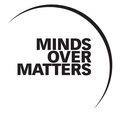 Clients call for help because the worst has happened.
Clients call for help because the worst has happened.
And for their lawyers, dealing with the aftermath can become a trauma of its own — leading to depression, anxiety, difficulty sleeping and concentrating, personality shifts and substance abuse.
The condition is called compassion fatigue, according to assistant director of Florida Lawyers Assistance Molly Paris, who teamed with the Florida Bar's Young Lawyers Division for wellness webinars that show some lawyers feel alienated and anxious as their clients' powerlessness transfer to them.
And while all legal sector professionals are at risk, experts say defense lawyers, legal aid staff and sex crimes prosecutors are particularly vulnerable.
Take for instance Nejla Calvo, who has spent four years with Legal Services of Greater Miami, handling landlord-tenant disputes for Miami mobile home park residents. As a new lawyer Calvo experienced compassion fatigue, suddenly faced with countless clients about to lose their homes.
"I was having nightmares," she said. "I was having these thoughts pop up out of the blue about my clients, some signs of anxiety and stress specifically related to cases I was working on because I felt, 'I don't have control over this outcome.' "
For Calvo, it helped to seek out a mentor similar in age, who helped show her that clients' fates weren't always in her control.
" You're not going to save everyone. It's not something that you should frame your work around," Calvo said. "You always have to have compassion in this line of work, but realizing what's in your control and what's not is a bit of a hardening, getting thicker skin while always leading from the heart."
Half the Plaintiffs Died
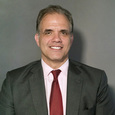 Matthew Dietz. Courtesy photo.
Matthew Dietz. Courtesy photo.Matthew W. Dietz, litigation director at Miami's Disability Independence Group Inc. has seen compassion fatigue throughout his 30 years practicing civil rights law—long before the condition had a name.
"I deal with people at the hardest times of their life, and sometimes you try as hard as you can and you just can't win. And sometimes it's unfair when you don't," Dietz said. "It's really stressful and depressing, and it makes you think about doing something else."
Just Tuesday, Dietz lost an appeal for a disabled 7-year-old client and her mother in a dispute with their landlord, while another case involving 3,500 children needing round-the-clock medical supervision lasted so long that about half the plaintiffs died before the litigation ended.
For attorney Jacqueline C. Ledon, legal aid work took its toll. Before becoming partner at J. Muir & Associates, Ledon spent 10 years serving low-income families with the Legal Services of Greater Miami, where she said it was difficult to leave work at the office.
"I cried during my first intake interview," Ledon said. "For a legal services client, it is always so important because your success or failure means the difference between homelessness and a roof over their family's heads, and hunger or food on their table."
'I'm Not Afraid to Admit That'
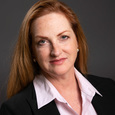 Bree Buchanan. Courtesy photo.
Bree Buchanan. Courtesy photo.Bree Buchanan, past director of the Texas Lawyers Assistance Program and chair of the American Bar Association Commission on Lawyers Assistance Programs, says the phrase "compassion fatigue" didn't exist 30 years ago when she began a career in legal aid representing domestic violence victims.
"There were always more cases than we could ever begin to handle, so the stress level was pervasive and constant," Buchanan said. "One of the things I first noticed was a diminishment of compassion for their circumstances. I went into this work because I cared about the clients and wanted to help them, but after a few years I started to find that it wasn't uncommon for me to resent them or blame them."
Buchanan quit after realizing her clients' problems had gone home with her, eventually manifesting into alcohol abuse. Buchanan has been sober for nine years, and encourages attorneys under stress to use the American Bar Association's wellbeing toolkit.
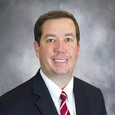 Christian George. Courtesy photo.
Christian George. Courtesy photo.Florida Bar's Young Lawyers Division president Christian P. George looks for opportunities to counteract that fatigue.
"I think everyone has had cases where there's so much negativity and toxicity coming from both sides that it's hard not to be affected," George said. "That's honestly part of the job and that's not going to go away, so lawyers have to learn how to deal with it."
For George, that means allowing his mind to take a break from the job, creating "no-phone zones" in his house and seeing a therapist once a month.
"I'm not afraid to admit that," George said. "It doesn't mean I'm sick, it doesn't mean I'm not well. It actually makes me a better person and lawyer."
Brian Cuban, Texas lawyer, author, speaker and activist has long advocated for better mental health, wellness and addiction recovery resources for lawyers and wrote a book about his experience with addiction. Cuban labels himself "a feeler" — someone at risk to compassion fatigue.
"It's natural to feel empathy for the traumatic experiences of others whether it's a client, friend or sick animal. My entire day can be preoccupied with a dead animal in the road," Cuban said. "The danger comes when we feel so much that it becomes, in essence, who we are in all other aspects of our lives, wearing a client's pain like a skin-tight suit, creating a negative impact on other aspects of our lives."
This can trigger mental health issues, alcohol and substance abuse, according to Cuban, who talks to a therapist weekly and has created a mindfulness and exercise routine to curb feelings of social isolation.
Related story: Lose the Warrior Facade: Outgoing Florida Bar President Gets Candid About Mental Illness, Suicide
'It's Killing Them'
Clinical social worker Lori James-Townes is chair of National Alliance of Sentencing Advocates & Mitigation Specialists, part of the National Legal Aid and Defender Association. She trains public defenders to piece together their clients' stories, but that exposes them to the secondary trauma.
Though James-Townes and her colleagues feel compassion fatigue, she said social workers don't face the same stigma attorneys do. Lawyers often find other ways to cope, including working harder or leaving their job, while researchers have flagged lawyers and judges as having higher suicide rates.
"[Lawyers] learn in law school to be tough, not to show feelings, not to be emotional, just to argue the law and be factual. There's a stigma around being weak," James-Townes said. "They love what they do but it's killing them as a result."
Psychologist and clinical director of Florida Lawyers Assistance Dr. Scott Weinstein said attorneys are reluctant to seek help as they're expected to be "immune" from emotion. When he first meets with lawyers, he welcomes them back to the human race.
"The most special part of being human is the ability to feel," Weinstein said. "I find attorneys who are so removed from their emotional world, and they can't understand why they can't think clearly anymore or can't concentrate. It's not because they suddenly lost their intelligence level, they have a lot of emotional stuff that's impacting their ability to think and do what they've got to do."
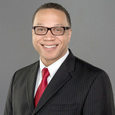 Gordon Weekes. Courtesy photo.
Gordon Weekes. Courtesy photo.Chief Assistant Broward Public Defender Gordon Weekes said his office is no stranger to stress and compassion fatigue.
"We are oftentimes frustrated in trying to communicate a person's lived experience to the state attorney, who has the awesome power to decide how a charge is going to be filed or how a case will be resolved and the types of punishment a person will have to endure," Weekes said.
In Weekes' view, it's crucial to focus on the positive outcomes of cases whenever possible.
"Refilling the well with the good work that you do helps you see the benefits of struggling and fighting through this very complicated maze that exists within the criminal justice system," Weekes said.
Akerman partner Richard C. Milstein agrees. He's worked in probate practice and pro bono work to help Miami's most vulnerable but said it's not all doom and gloom, as strength and energy can be drawn from clients' gratitude and occasional positive results.
Milstein said, "Those that labor in public service are tireless heroes."
Professionals under stress are urged to share the burden by contacting their local Lawyers Assistance Program via this link.
Related stories:
Minds Over Matters: An Examination of Mental Health in the Legal Profession
'Two Skins': Hard Lessons For Law Students at Immigration Detention Center
NOT FOR REPRINT
© 2025 ALM Global, LLC, All Rights Reserved. Request academic re-use from www.copyright.com. All other uses, submit a request to [email protected]. For more information visit Asset & Logo Licensing.
You Might Like
View All
Local Boutique Expands Significantly, Hiring Litigator Who Won $63M Verdict Against City of Miami Commissioner
3 minute read
Greenberg Traurig Combines Digital Infrastructure and Real Estate Groups, Anticipating Uptick in Demand
4 minute read
US Judge Cannon Blocks DOJ From Releasing Final Report in Trump Documents Probe
3 minute read
Plaintiffs Allege Carollo Retaliated Over Bayfront Trust Accounting Discoveries
3 minute readTrending Stories
- 1Departing Attorneys Sue Their Former Law Firm
- 2Pa. High Court: Concrete Proof Not Needed to Weigh Grounds for Preliminary Injunction Order
- 3'Something Else Is Coming': DOGE Established, but With Limited Scope
- 4Polsinelli Picks Up Corporate Health Care Partner From Greenberg Traurig in LA
- 5Kirkland Lands in Phila., but Rate Pressure May Limit the High-Flying Firm's Growth Prospects
Who Got The Work
J. Brugh Lower of Gibbons has entered an appearance for industrial equipment supplier Devco Corporation in a pending trademark infringement lawsuit. The suit, accusing the defendant of selling knock-off Graco products, was filed Dec. 18 in New Jersey District Court by Rivkin Radler on behalf of Graco Inc. and Graco Minnesota. The case, assigned to U.S. District Judge Zahid N. Quraishi, is 3:24-cv-11294, Graco Inc. et al v. Devco Corporation.
Who Got The Work
Rebecca Maller-Stein and Kent A. Yalowitz of Arnold & Porter Kaye Scholer have entered their appearances for Hanaco Venture Capital and its executives, Lior Prosor and David Frankel, in a pending securities lawsuit. The action, filed on Dec. 24 in New York Southern District Court by Zell, Aron & Co. on behalf of Goldeneye Advisors, accuses the defendants of negligently and fraudulently managing the plaintiff's $1 million investment. The case, assigned to U.S. District Judge Vernon S. Broderick, is 1:24-cv-09918, Goldeneye Advisors, LLC v. Hanaco Venture Capital, Ltd. et al.
Who Got The Work
Attorneys from A&O Shearman has stepped in as defense counsel for Toronto-Dominion Bank and other defendants in a pending securities class action. The suit, filed Dec. 11 in New York Southern District Court by Bleichmar Fonti & Auld, accuses the defendants of concealing the bank's 'pervasive' deficiencies in regards to its compliance with the Bank Secrecy Act and the quality of its anti-money laundering controls. The case, assigned to U.S. District Judge Arun Subramanian, is 1:24-cv-09445, Gonzalez v. The Toronto-Dominion Bank et al.
Who Got The Work
Crown Castle International, a Pennsylvania company providing shared communications infrastructure, has turned to Luke D. Wolf of Gordon Rees Scully Mansukhani to fend off a pending breach-of-contract lawsuit. The court action, filed Nov. 25 in Michigan Eastern District Court by Hooper Hathaway PC on behalf of The Town Residences LLC, accuses Crown Castle of failing to transfer approximately $30,000 in utility payments from T-Mobile in breach of a roof-top lease and assignment agreement. The case, assigned to U.S. District Judge Susan K. Declercq, is 2:24-cv-13131, The Town Residences LLC v. T-Mobile US, Inc. et al.
Who Got The Work
Wilfred P. Coronato and Daniel M. Schwartz of McCarter & English have stepped in as defense counsel to Electrolux Home Products Inc. in a pending product liability lawsuit. The court action, filed Nov. 26 in New York Eastern District Court by Poulos Lopiccolo PC and Nagel Rice LLP on behalf of David Stern, alleges that the defendant's refrigerators’ drawers and shelving repeatedly break and fall apart within months after purchase. The case, assigned to U.S. District Judge Joan M. Azrack, is 2:24-cv-08204, Stern v. Electrolux Home Products, Inc.
Featured Firms
Law Offices of Gary Martin Hays & Associates, P.C.
(470) 294-1674
Law Offices of Mark E. Salomone
(857) 444-6468
Smith & Hassler
(713) 739-1250






